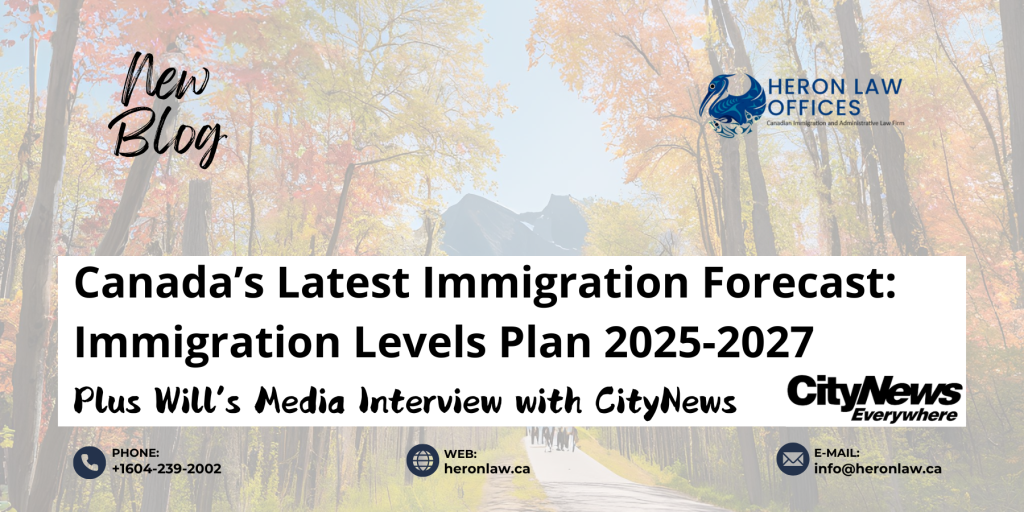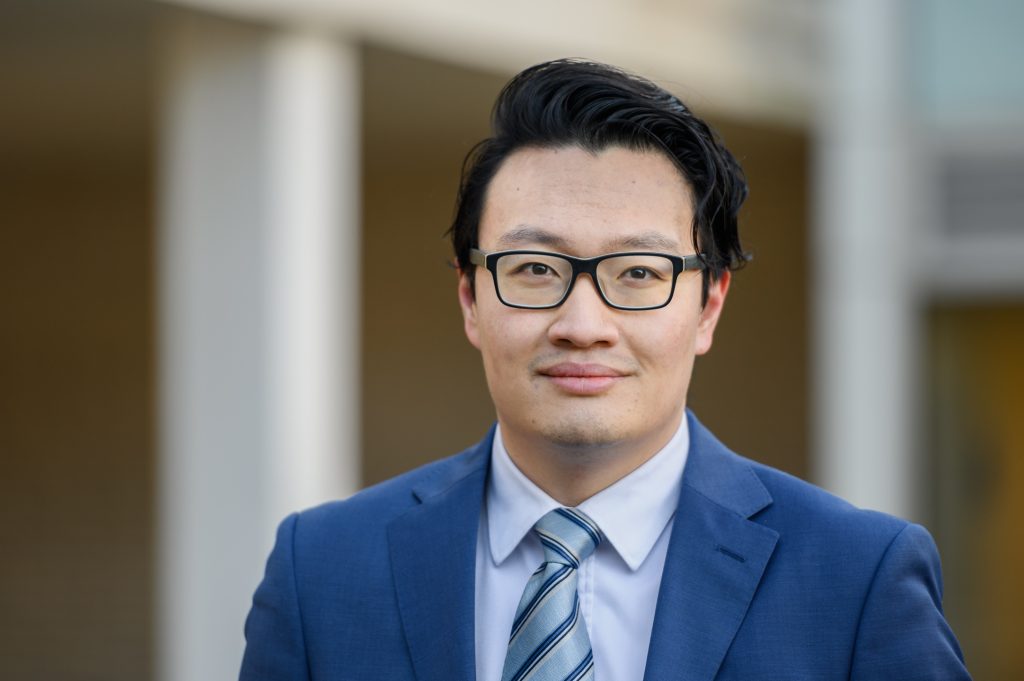
By: Karina Juma, Articling Student, Heron Law Offices
Last week, the Minister of Immigration, Refugees and Citizenship Canada announced Canada’s projected immigration targets for the next three years, doubling down on the recent trend of immigration cutbacks, with significant hits to both permanent and temporary residence.
Under the 2025-2027 Immigration Levels Plan, Canada will reduce permanent resident admissions by 105,000 spaces to 395,000 in 2025 and will prioritize those who are already in Canada as temporary residents.
In 2025, around 24% of permanent resident admissions will be reserved for family reunification under the family class and by 2027, 62% of total permanent resident admissions will be reserved for economic immigration, particularly in key sectors like health care and trades occupations.
Francophone immigration to communities outside Quebec is also being boosted, with Francophone admission targets rising from 8.5% in 2025 to 10% in 2027.
The Minister previously announced that Canada will be decreasing the number of temporary residents to 5% of the total population over the next three years. In September 2024, an intake cap was placed on international student study permits for 2025, reducing the number of permits issued by 10% compared to this year.
Several measures directed at foreign workers were also announced in September including tightening eligibility requirements for post-graduate work permits; imposing a 10% cap on employers hiring temporary foreign workers under the low-wage LMIA stream; and limiting work permit eligibility for spouses of international students and temporary foreign workers.
Asylum seekers are excluded from the temporary resident targets as they are entitled under Canadian law to have their claims assessed, provided they meet the eligibility requirements.
Overall, Canada’s temporary population will decline by 445,901 people in 2025 and 445,662 people in 2026, followed by an increase of 17,439 people in 2027. The plan is expected to improve housing affordability and decrease unemployment across the country.

Heron Law Offices’ Principal Canadian Immigration Lawyer Will Tao was invited by CityNews to comment on the changes, pointing out that the timing of the changes is politically motivated and that cutting immigration will not necessarily solve Canada’s affordability and housing crises.
“You’re going to see a lot of negative spillover effects,” says Tao, “I just hope Canadians are prepared for those negative externalities, because none of these decisions is a clear-cut good answer.”
He emphasized the need for data-driven policy-making to ensure immigration decisions reflect the complex realities on the ground.
“We need more data, and we need to work with the partners and try and gather that data so we can make data-informed decisions that focus on that element, as opposed to necessarily pandering to whatever the flavour of the political day is.”
According to Tao, while politicians may scapegoat immigrants for rent prices and the rising cost of living, they actually relieve Canadians from paying higher tuition and fill many lower-income jobs. For Tao, framing immigrants as the problem oversimplifies narratives, creates distrust, and often acts as a proxy for racism.
Screenshot and quotes from the News article: https://vancouver.citynews.ca/2024/10/24/will-tao-immigration-scapegoating-federal-liberal/

Will Tao is a leading Canadian immigration lawyer and the Co-Founder of Heron Law Offices in Burnaby, British Columbia. Known for his client-centered approach, Will has built a strong reputation in immigration law, particularly in complex cases involving family reunification, inadmissibility, and litigation. He is celebrated for his advocacy, public commentary, and insightful writing on immigration policy and systemic issues within Canada’s immigration system.
Will’s expertise extends to various immigration pathways, including skilled immigration, family sponsorship, and Provincial Nominee Programs (PNPs). He frequently writes and speaks about immigration reform, offering nuanced perspectives on the challenges faced by immigrants and refugees in Canada. In addition to his legal practice, Will is deeply engaged in community initiatives and often collaborates with organizations and stakeholders to advance immigrant and refugee rights.
Through his leadership at Heron Law Offices, Will has shaped a practice known for its innovation, holistic care, and dedication to supporting clients with integrity and empathy.
If you believe you will be affected by the 2025-2027 Immigration Levels Plan and need advice on your immigration matter, contact Heron Law Offices to book a consultation with one of our experienced immigration lawyers.



